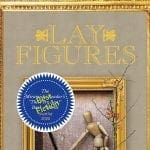I’ve spent more time than usual mulling over Kate Cayley’s Householders. In nine separate yet interwoven stories, Cayley creates a complex world inhabited by a set of distinct characters that, in different ways, seem to whisper something of themselves back to readers and to each other. Likewise, while the settings central to each story shift and change, memories of shared places emerge between stories and create pathways of meaning. The pieces navigate past, present, and future; they centre urban mothers, struggling artists, young dreamers, wanderers, children, the elderly, the godlike and the god-less. They are rooted in rural poverty, in the gentrifying city, in disconnected communities, in European flats, in university dorms, and in post-apocalyptic bunkers. Householders is not easily distilled into a summary note. Instead, the way each piece echoes into the next, and the interwoven threads that run throughout the collection, require readers to sit down with suspended expectation. We must wait to figure out what is really going on as the collection moves forward, and learn to be ok with never really knowing the full story even as it is spelled out on the page.
Though each story is different, several are connected to life in a commune in rural Maine. Some pieces are set in this space, where a seemingly brilliant but troubled (and troubling) messiah figure named John uses his knowledge of various histories to entice people to live together on the land. As one character tells us, showing anger was not allowed in this community nor was maintaining any connection to one’s past. Family photos, keepsakes, and even birth names must be renounced, generating a pseudo-blank slate from which to build toward a sense of collective understanding. In different ways, this philosophy is questioned by the various characters connected to the commune. We hear from children of community members who struggle to come to terms with their place in the world, members of the community who have been left behind, and more tangential figures like a mother who “had grown up in a ramshackle commune in Maine.” This kaleidoscopic portrayal of one space over time and through different vantage points affords readers diverse perspectives of the rippling power of shared experience.
“Cayley is adept at using tight sentences and purposeful language to get to the quick of a narrative thread, and her prose lays bare the struggle between perception and reality.”
Even when a story is not related to the commune, reflections on community are central. In “The Crooked Man,” a seemingly innocuous neighbourhood in Toronto sends a young mother into an emotional spiral. She is overwhelmed by what she can and cannot comprehend about her life and surroundings, and feels at once both too connected and deeply disconnected from her own reality. In this way, the story navigates the beauty and pain of community to a tense and uncertain end. Here and elsewhere, questions of leaving and change bubble to the surface. For example, “A Beautiful Bare Room” reflects on the lasting vestiges of relationships in a fallen world and ponders the consequences of escape. The impacts of the narrator’s decision to leave, and her own understanding of this outcome, leaves readers with a sense of unease that lingers long after the story ends.
Cayley is adept at using tight sentences and purposeful language to get to the quick of a narrative thread, and her prose lays bare the struggle between perception and reality. These stories are not easy, often upending reader’s expectations just when we think we know what is going on. The outcomes of such shifts are, at times, a bit disorienting. I found myself returning to certain passages or whole stories, or looking for hints of characters between pieces as a way to create my own connections.
In the end, I think it is a testament to the strength of the collection that I’ve struggled to untangle my thoughts about it. Trying to parse through the stories is difficult because they are all affective in their own way. These pieces stick with you because Cayley’s writing is beautiful and hard. The style used to depict a range of weird and wonderful characters is compelling, and the experiences navigated throughout tap into tensions that feel gripping and present. Ultimately, Householders is a movement through contrasts, confusion, and moments of clarity. It reflects on the familiar and the disparate, and successfully brings together a patchwork of unique moments into something beautiful.
Kate Cayley has previously written a short story collection, two poetry collections, and a number of plays, both traditional and experimental, which have been produced in Canada and the US. She is a frequent writing collaborator with immersive company Zuppa Theatre. She has won the Trillium Book Award and an O. Henry Prize and been a finalist for the Governor General’s Award. She lives in Toronto with her wife and their three children.
- Publisher : Biblioasis (Sept. 14 2021)
- Language : English
- Paperback : 240 pages
- ISBN-10 : 1771964294
- ISBN-13 : 978-1771964296
Gemma Marr (she/her) was born and raised in rural New Brunswick. After over a decade away, she is excited to return to the province to teach in the Department of Humanities and Languages at the University of New Brunswick Saint John. Her research focuses on the intersections of place, gender, and sexuality in Atlantic Canadian literature and culture. She is an avid reader and writer who enjoys books from a range of genres and styles.










